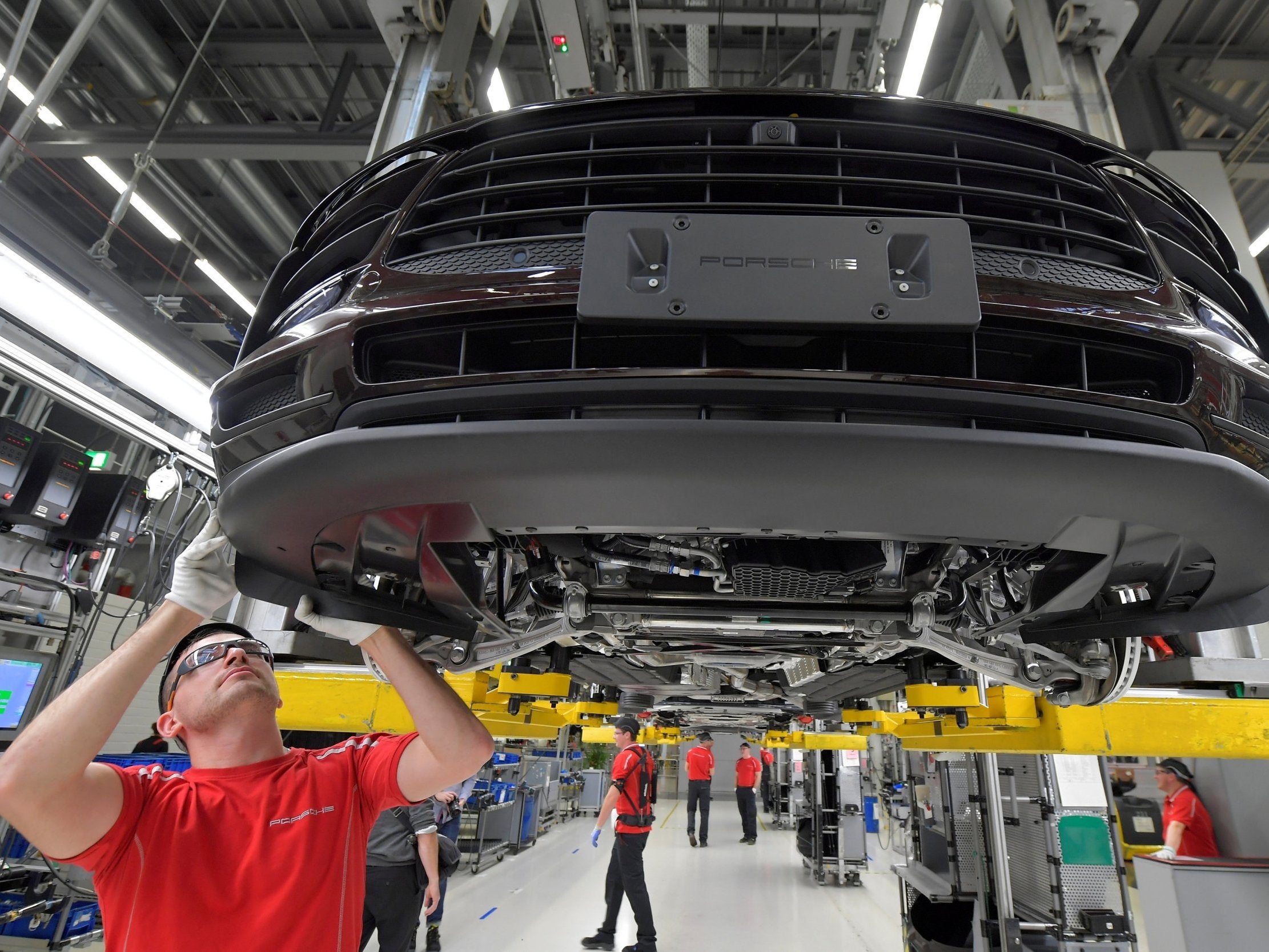Germany may not be in recession, but US trade disputes aren’t exactly making things easier
One should never underestimate the country’s ability to fight back against economic headwinds, but trade talks, Brexit and a struggling car industry aren't helping matters


Your support helps us to tell the story
From reproductive rights to climate change to Big Tech, The Independent is on the ground when the story is developing. Whether it's investigating the financials of Elon Musk's pro-Trump PAC or producing our latest documentary, 'The A Word', which shines a light on the American women fighting for reproductive rights, we know how important it is to parse out the facts from the messaging.
At such a critical moment in US history, we need reporters on the ground. Your donation allows us to keep sending journalists to speak to both sides of the story.
The Independent is trusted by Americans across the entire political spectrum. And unlike many other quality news outlets, we choose not to lock Americans out of our reporting and analysis with paywalls. We believe quality journalism should be available to everyone, paid for by those who can afford it.
Your support makes all the difference.The sun is shining, though the snow is still on the ground outside the gleaming headquarters of BMW here in Munich. But there is a chill wind blowing through the German motor industry and, by extension, through the German economy.
If the current spat between the US administration and the European Commission on car tariffs develops into a trade war, then the wind will become chillier yet.
It is always fascinating to be in Germany, and to admire its calm and competence. Munich is one of the jewels of the country’s economy, with a strong financial and high-tech sector as well as BMW. But Germany came within a whisker of recession in the second half of last year, and part of the problem is the motor industry. And that is before the whole tariff business.
Let’s start with that. Donald Trump is threatening to put a 25 per cent tariff on imported cars, citing national security. You can argue that this is a spurious reason, but the fact remains that the EU has a 25 per cent tariff on US cars imported into Europe. So there should be grounds for a deal.
Just this morning, the German economy minister Peter Altmaier said on the radio that the focus should be on reducing tariffs generally, suggesting that Germany will nudge the commission towards offering the US better access to the European market, though agricultural products will be excluded.
We’ll see how these talks go. But you can argue that the EU needs the US market more than the US needs the European one, and a 25 per cent tariff on car imports would be devastating for German industry. The UK would get caught in the crossfire, I’m afraid, with Jaguar Land Rover gravely damaged. But the relative weight of the motor business is so much bigger in Germany (about four times the size) that the knock-on impact on the economy as a whole would be much greater.
Let’s assume there is a deal. Even so, the German car industry is under great pressure. That pressure is evident in the UK, and the closure of the Honda factory is a reflection of that. But it is more the result of the revolt against diesel. Europe made a bet on diesel – the rest of the world is more of a petrol market – and the combination of Volkswagen cheating over emissions and the wider health concerns has meant the whole industrial sector is on the wrong foot. The switch to electric cars compounds this error. To exaggerate, Germany is brilliant at making cars people no longer want to buy.
Of course it will recover. I totted up the investment that German companies are putting into electric vehicles and it came to more than €100bn. That is big, even for a big industry. But it will be tough, for China has lower costs and is putting huge investment into battery technology. More than half the world’s electric cars last year were sold in China.
As for the knock-on impact, this comes at a bad time. The economy is flat. I have just seen a report by the economics team at ING bank headed “Germany: between free fall and stagnation”.
The possibility that the German economy, of course Europe’s largest, might slip into free fall is not something that is on most people’s radar. I was relieved to see that ING’s conclusion was a little more positive: “The economy is about to find a new equilibrium, albeit at a lower pace.”
If that is right, Europe’s locomotive will not be able to pull the rest of the continent along very fast. There is some sort of downturn looming, and the experience of the last one is that we should not be too clever in trying to predict how serious it might be. Germany in recession would be very bad news indeed, but Germany bobbing along with slow growth is not brilliant news either.
It is strange, looking out across this shining, wealthy, orderly city to think of this as an economy facing, at best, slow growth. One should never underestimate the ability of Germany to fight back against economic headwinds. But it does face huge challenges, and we should be aware of this.
Join our commenting forum
Join thought-provoking conversations, follow other Independent readers and see their replies
Comments